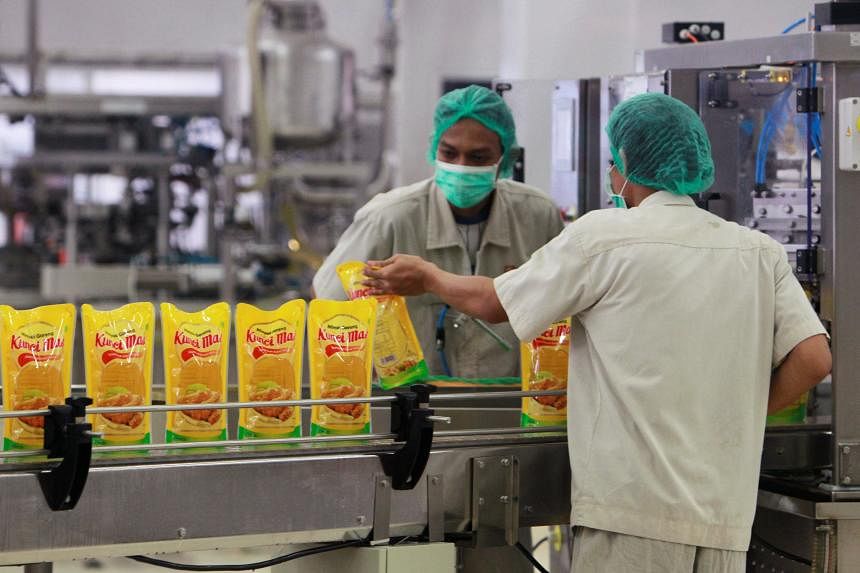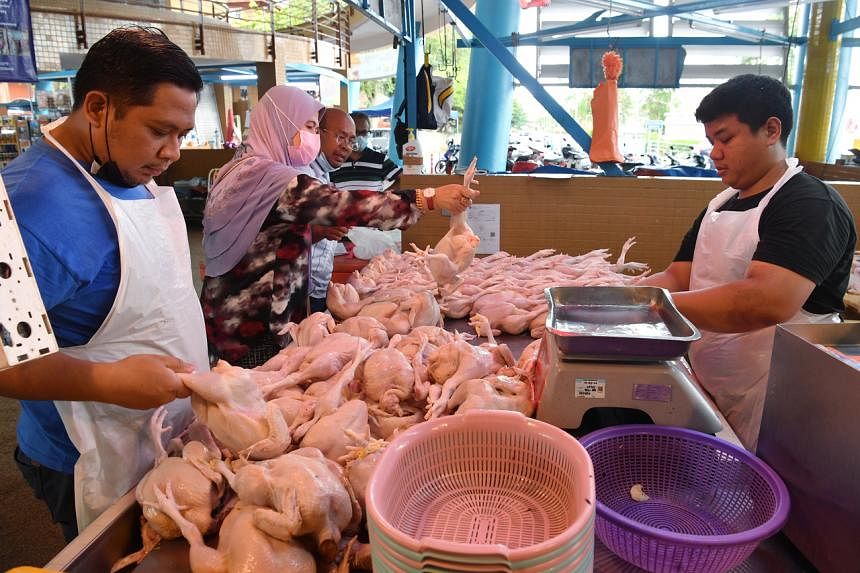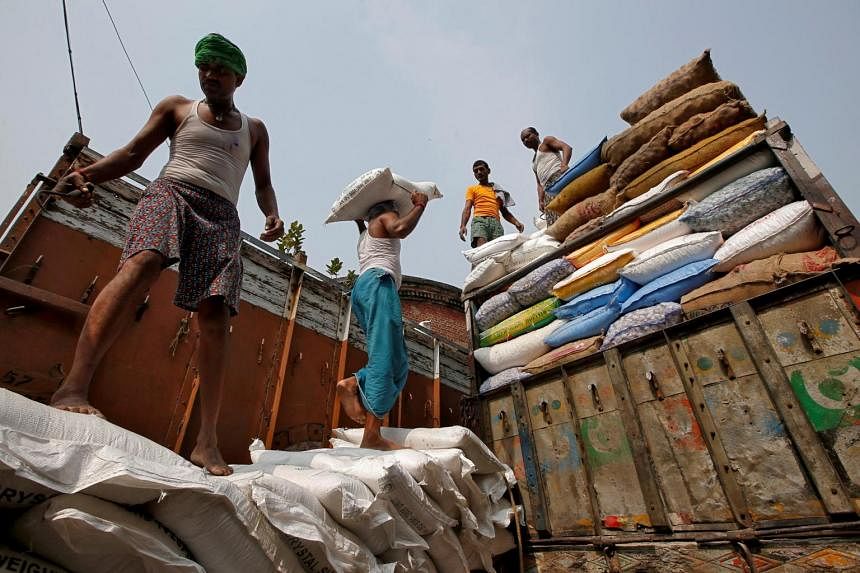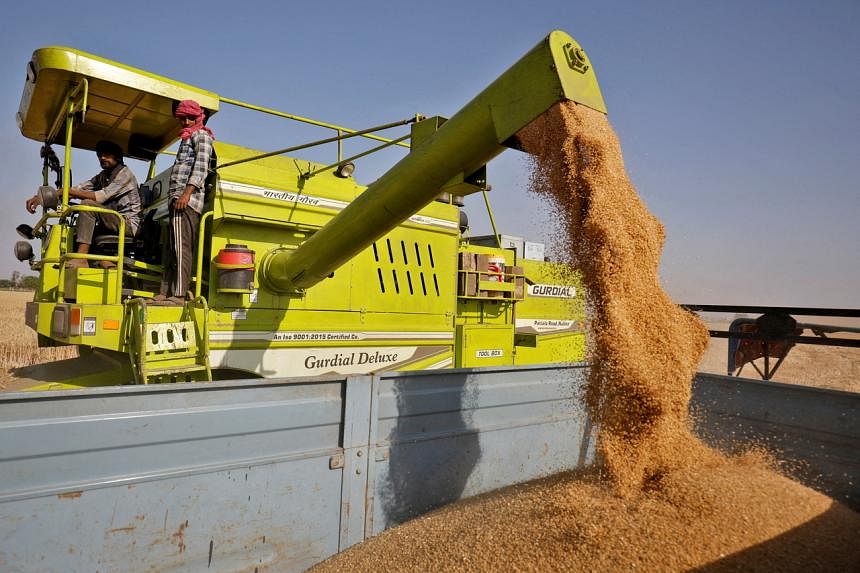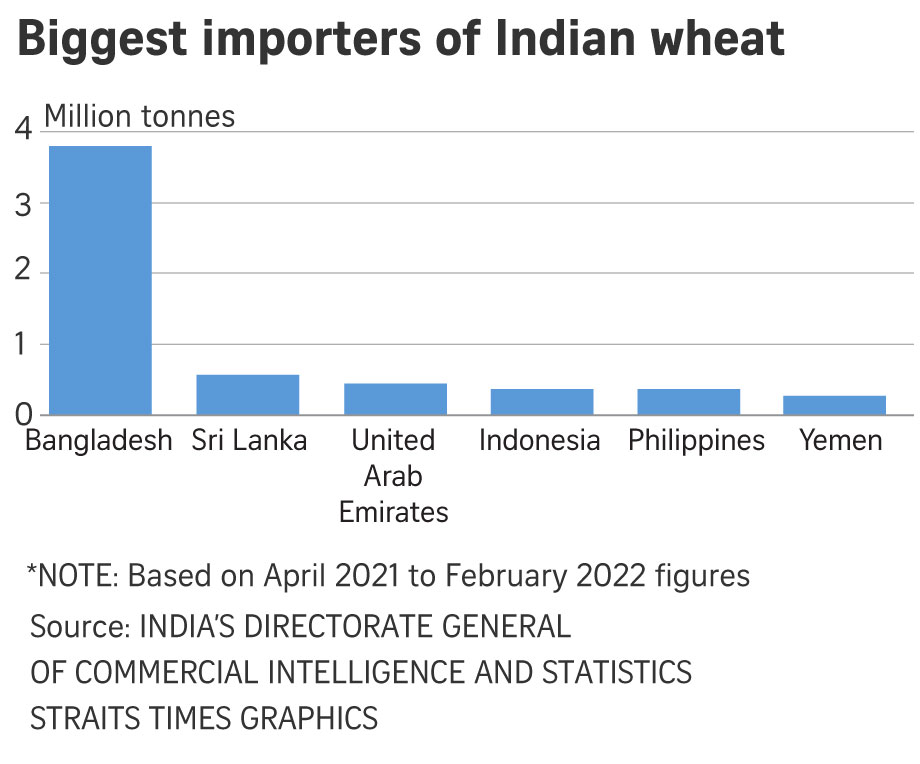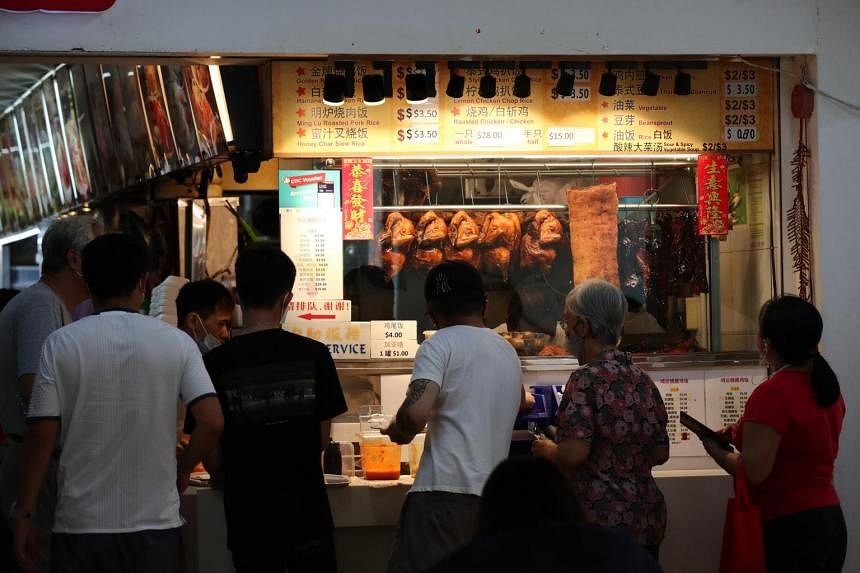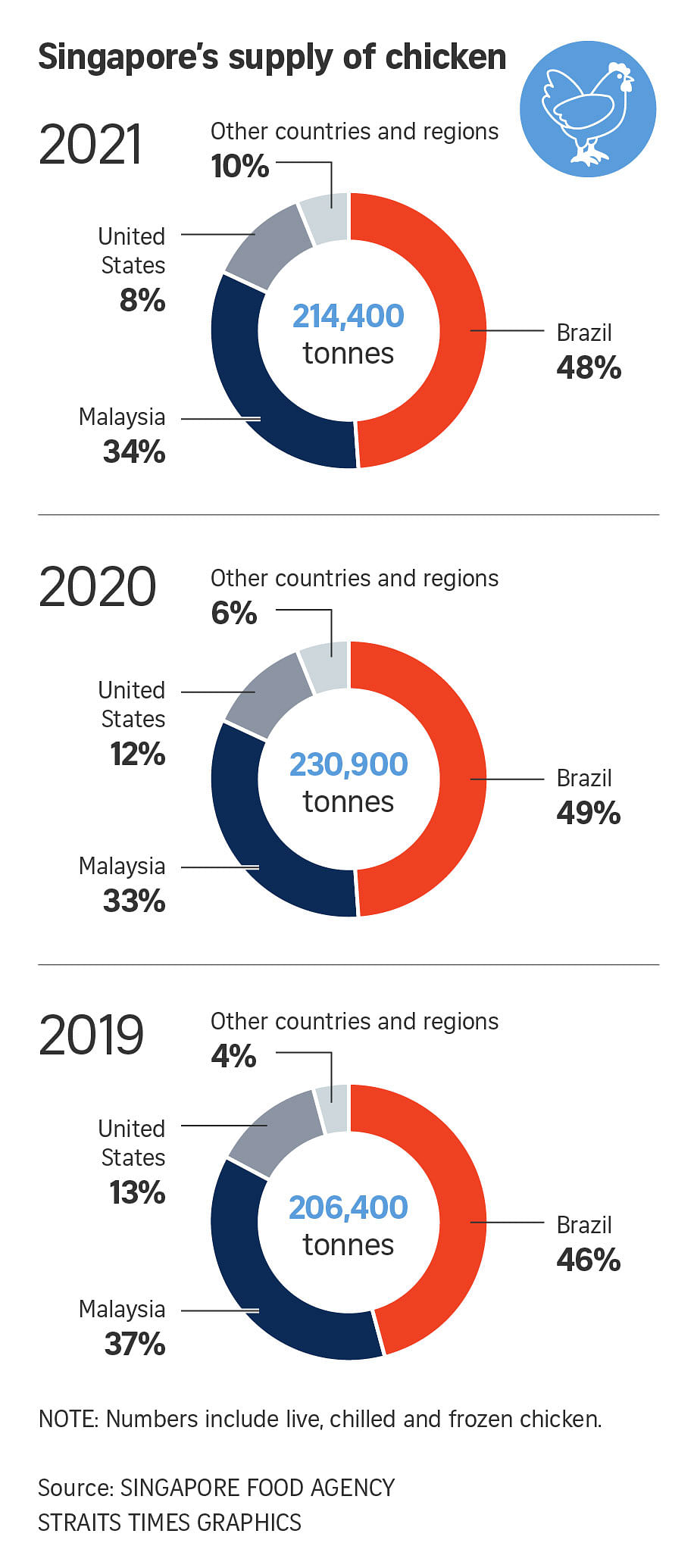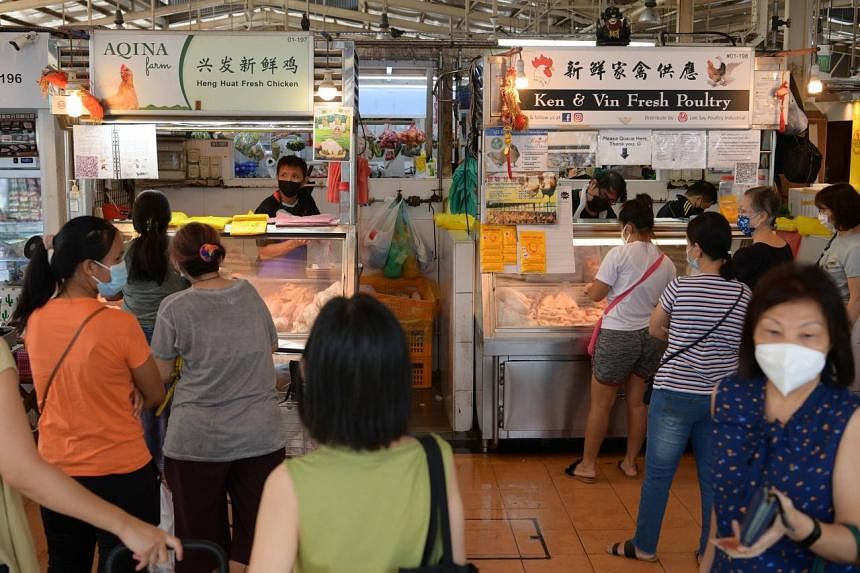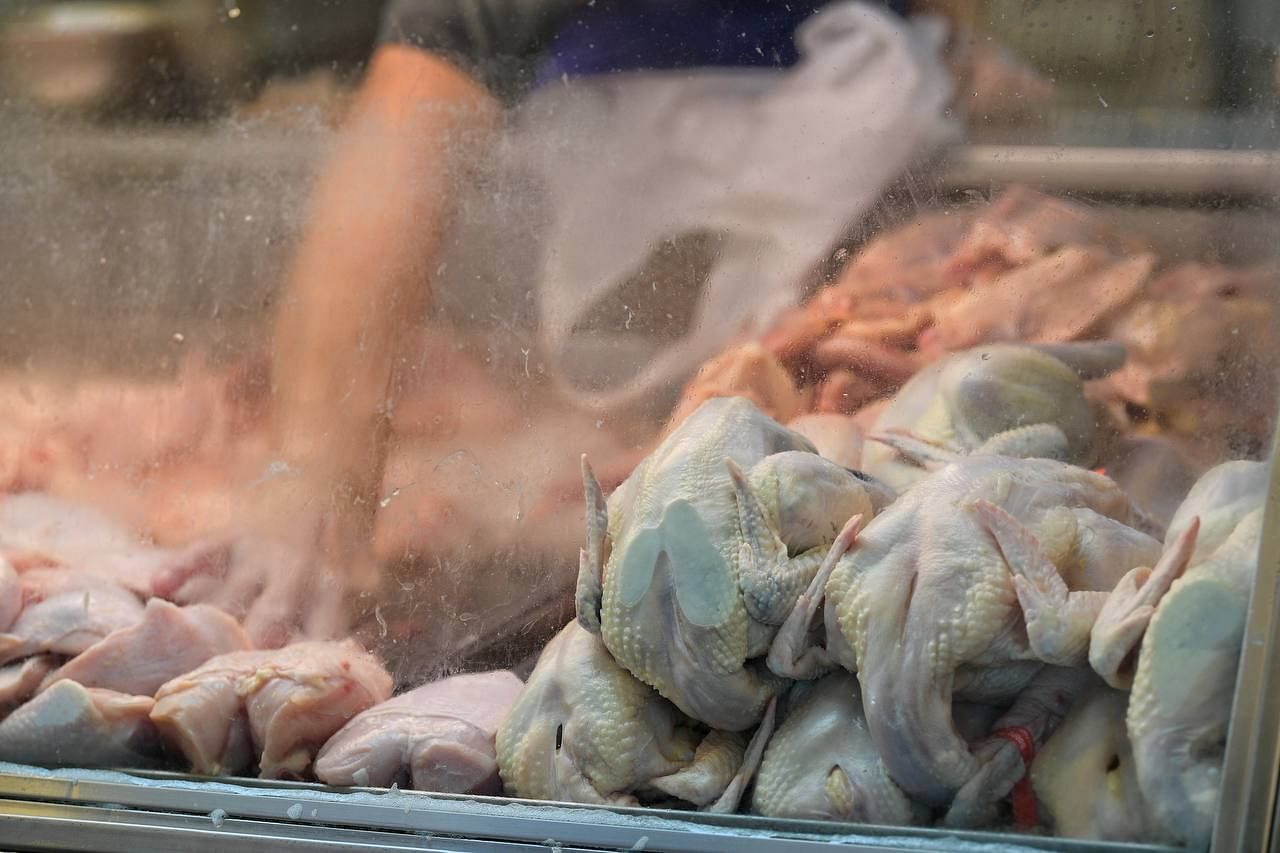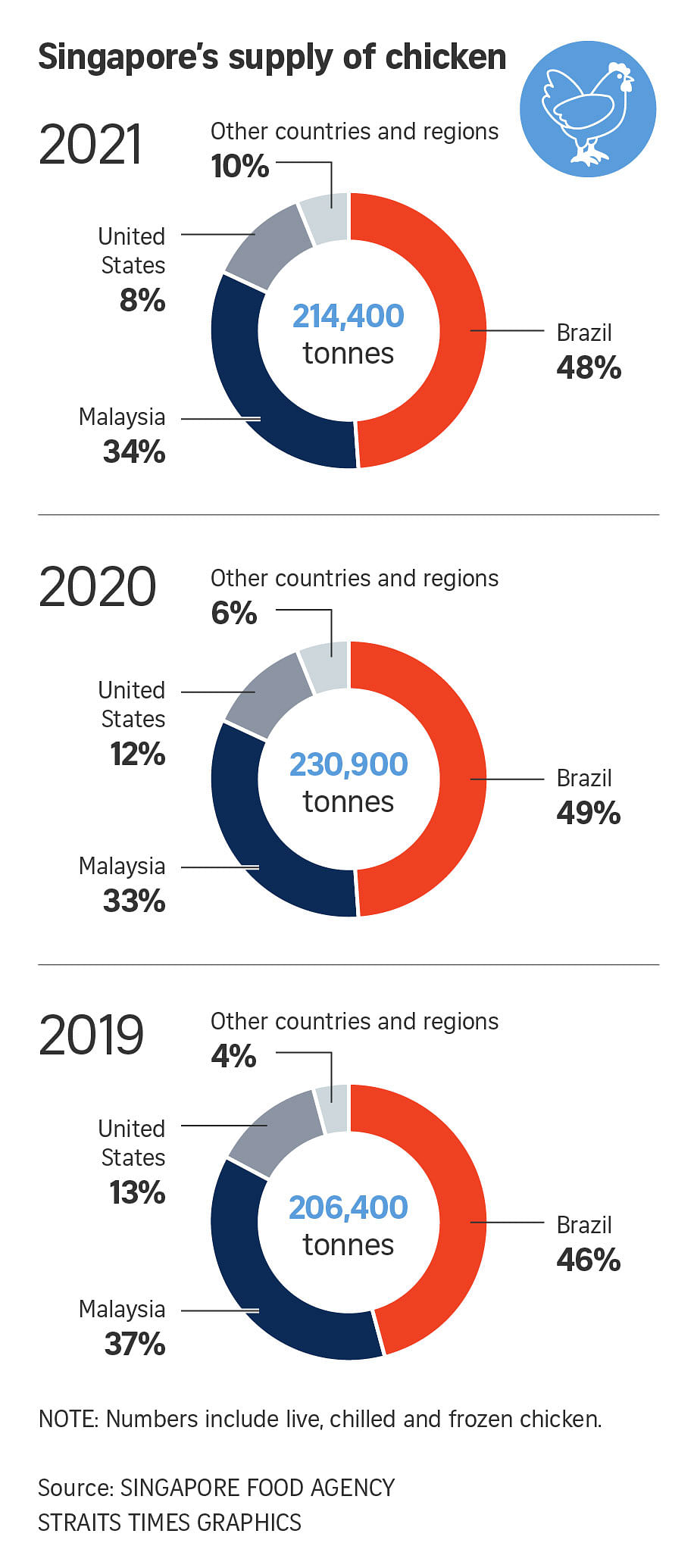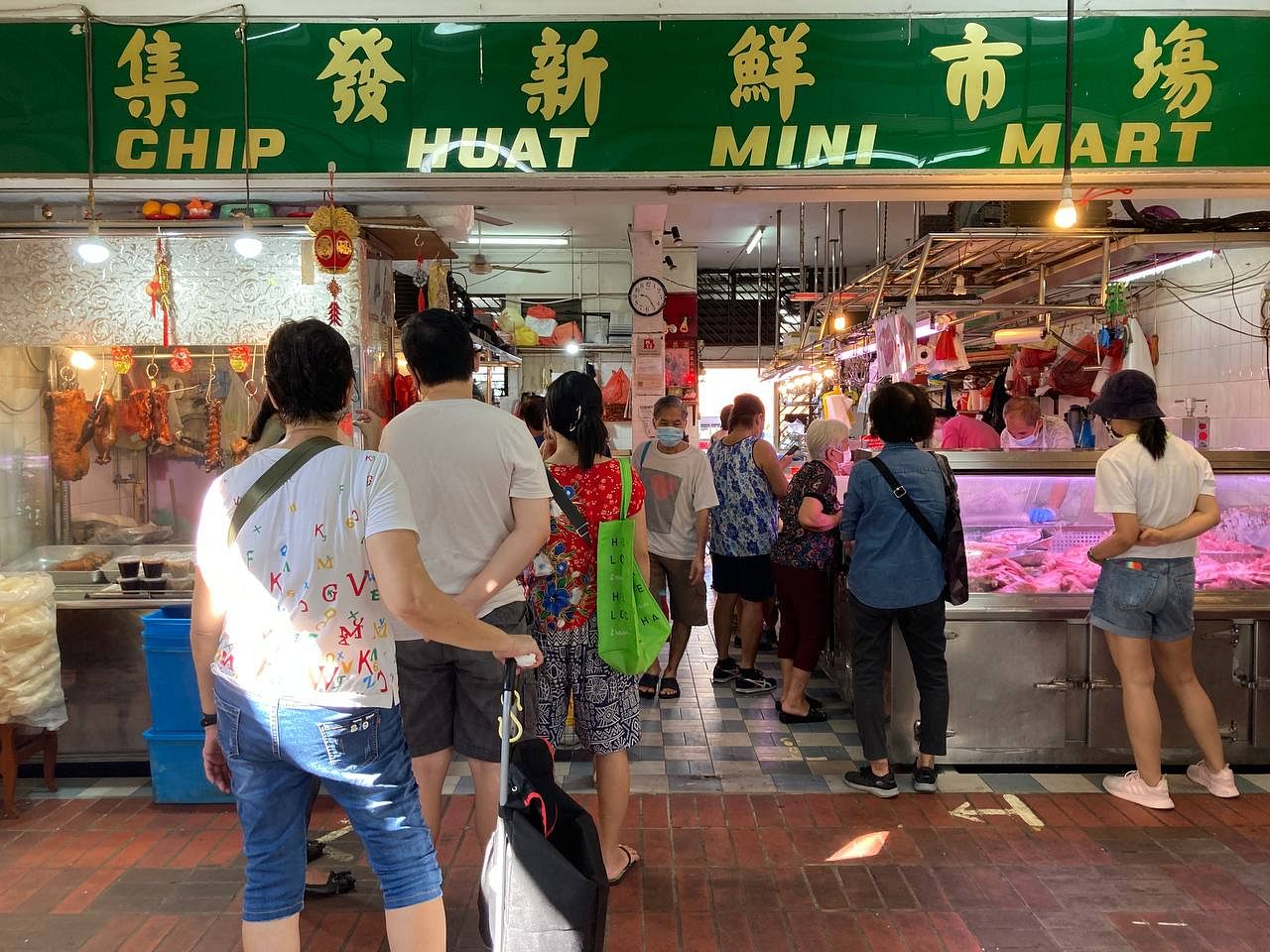Some poultry sellers may shut stalls when chicken exports halt from Malaysia, price hike expected
People queueing to buy poultry at 20 Ghim Moh Road Market & Food Centre on May 24, 2022. ST PHOTO: NG SOR LUAN
Melissa Heng
May 24, 2022
SINGAPORE - Some poultry sellers here said they may have to shut their stalls temporarily when Malaysia halts its exports of chickens in June, while others expect a price hike of about 10 to 30 per cent.
Meanwhile, consumers The Straits Times spoke to said they are not worried and will turn to other meats or buy frozen chicken from other countries.
Malaysia announced on Monday (May 23) that the country
intends to stop exporting chickens in June.
Poultry sellers at Bedok North Market and Food Centre, Tiong Bahru Market and Geylang Serai Market told ST on Tuesday morning that the move will heavily impact their business.
These are stall operators who mainly get their chicken supply from across the Causeway.
Singapore imported about 34 per cent, or close to 73,000 tonnes, of its chicken supply from Malaysia in 2021.
Mr Yeow Wei Min, 61, who runs a chicken stall at 216 Bedok North Market and Food Centre, said the impending halt of chicken exports from Malaysia will be disastrous for his business. All of his fresh chicken supply comes from Malaysia.
He said: "There is nothing I can do about it, nor do I have any alternatives. If there is no supply then I will temporarily close my stall and take a rest. If this persists in the long term then I will close down this stall."
Mr Stanley Yow, 52, owner of Stanley Fresh Chicken at Tiong Bahru Market, said: "If they have 10 chickens, I'll sell 10. If they have 100, I'll sell 100. If they have no chickens, I'll just rest."
Mr Fabian Lim, 62, who works at a poultry stall at Geylang Serai Market, said prices will spike by about 20 to 30 per cent as the stall's fresh chicken is mainly from Malaysia.
"I have no choice but to increase prices, if we buy high than we have to sell high. All I hope for is that imports from other countries like China or Indonesia will increase and balance out the shortage," he said.
Mr Husni Hashim, 56, who sells poultry at another stall at Geylang Serai Market, said he plans to increase prices for his frozen chicken.
He said: "I will see what happens before deciding the price increase. If customers really want to eat chicken, they have to buy frozen chicken, they have no choice."
Mr Vincent Liow, 47, owner of Ken & Vin Fresh Poultry at Ghim Moh Market, said he will have to increase prices if suppliers raise the cost. All of his fresh chicken is sourced from Malaysia.
"Maybe we temporarily will go for frozen chickens until the export situation improves," he said.
Singapore imported about 34 per cent of its chicken supply from Malaysia in 2021. ST PHOTO: NG SOR LUAN
But not all stall holders are concerned. Mr Hashim Abbas, 73, who runs a poultry stall at Geylang Serai Market, said he is not worried about Malaysia's decision to halt exports of chicken as he believes it will not last long.
All of his fresh chicken is from Malaysia, but his stall also sells frozen chicken from various countries including Brazil, Australia and Denmark.
"If Singaporeans cannot buy fresh chicken then there are other alternatives they can opt for like frozen chicken or other types of meat. I trust that the Government will be able to manage prices and supply."
In a report by The Straits Times on Monday, the Singapore Food Agency (SFA) said that importers will activate their supply chains to
increase imports of chilled chicken from alternative sources, increase the import of frozen chicken from existing suppliers outside of Malaysia, or draw from their stocks of poultry.
President of the Consumers Association of Singapore (Case) Melvin Yong said in a Facebook post on Tuesday that the sudden announcement by Malaysia is likely to have an adverse impact on the prices of chicken and related products in Singapore. He encouraged consumers to consider alternative sources of chicken and meat products and frozen options.
He said: "Case understands that SFA is monitoring the situation very closely with relevant stakeholders to minimise the impact of Malaysia's move on our chicken supply."
He added that consumers should also buy what they need, and not buy excessively.
Online grocer RedMart and DFI Retail Group, which owns supermarkets Cold Storage and Giant, echoed the call for consumers not to panic buy.
Head of RedMart and Grocery at Lazada Singapore Jolin Huang said: “RedMart has a robust and diverse supply chain, and we import chicken from other countries including New Zealand and Brazil. In the light of the announcement by Malaysia, we will work with our suppliers from other countries to increase their volume and will closely monitor the situation.”
A DFI Retail Group spokesman said: “We are currently in discussions with non-Malaysian suppliers to increase imports of chilled poultry as well as other meats to offer more alternatives to consumers.”
Chicken suppliers noted that prices for poultry have been fluctuating for the past year due to the pandemic and higher operating costs.
Mr James Sim, head of business development at chicken importer Kee Song Food Corporation, said that rising inflation also impacts retail prices.
While Mr Sim could not comment on how much chicken prices might increase due to Malaysia’s decision, he said the company will continue to monitor the market and adjust prices accordingly.
The company, which works mainly with farms in Malaysia, has already had to increase prices a few times.
He said: “We do keep our consumers in mind when considering any price increase. We also encourage consumers not to panic buy as there will be enough stock for all.”
He added that besides fresh chicken, consumers can also opt for chilled or frozen poultry products.
Consumers who regularly eat chicken said that they are willing to eat other meats such as fish or mutton and will likely still continue to buy chicken if prices are not too steep.
Customers queueing for fresh poultry at Chip Huat Mini Mart at 262 Serangoon Central Drive on May 24, 2022. ST PHOTO: AILEEN TEO
Madam Olivia Ong, 73, a retired power supply clerk, said that although she buys chicken every week, she is willing to replace it with other types of meat if fresh chicken is not available.
She said: "I will just eat less chicken. I am not alarmed by the news and I won't start panic buying because of it."
Financial adviser and father-of-two Lee Wei Ming, 39, said that although his family eats chicken every week, they are also open to alternatives.
He said: "Whether or not we'll buy less chicken depends on how much prices increase. Chicken is the most common meat, but as consumers, we always have a choice to eat other meats."
Business owner and beauty therapist Cecilia Westberry, 59, who regularly shops at Ghim Moh market, said she has noticed prices creeping up for many food items in the past months.
"I think we should be careful not to waste food. Even if the chicken farms don't increase prices much, the retailers will, due to the rising costs of logistics and other operations."
She said she is not worried about a possible price hike for chicken. "I will keep buying chicken, as my family likes to eat it."
